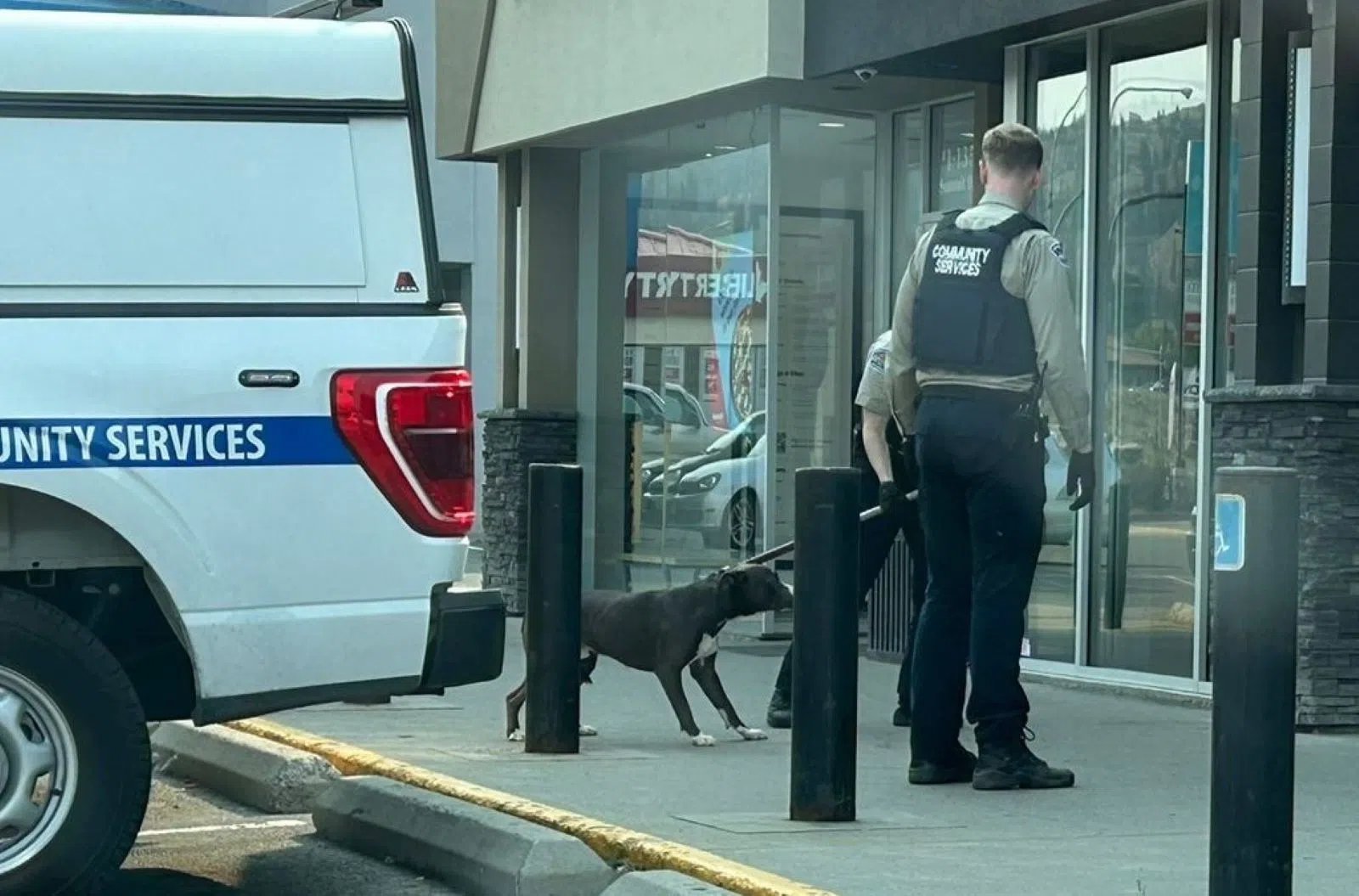
Community Services Officers attempting to lead one of three pit bulls who killed another dog on Sunday into a Sahali veterinarian office/via Brett Mineer
The City of Kamloops has announced its intention to have three pit bulls involved in a deadly attack on another animal last month on the city’s north shore put down.
Community Services Manager Will Beatty says after a thorough investigation involving the City’s CSO department, veterinarians and animal behaviour specialists, they’ve determined the dogs can not be rehabilitated.
This, despite confirmation that the animals were high on drugs at the time of the attack.
“Two of the dogs tested positive for amphetamine, as well as cocaine. The third dog tested positive for methamphetamine, amphetamine and cocaine,” confirmed Beatty.
Beatty says while the animal behavior specialist who reviewed the dogs after-the-fact noted that stimulants were in the dog’s systems at the time, he says that wasn’t enough to sway the decision to apply to have the dogs euthanized.
“There’s not enough supporting information out there, obviously because dogs can’t talk and tell you how they’re feeling when they’re under a stimulant,” said Beatty. “So there’s not enough supporting documentation or science out there to suggest that’s why they did what they did.”
Charges against the owner of the dogs by either the RCMP or the BCSPCA are not anticipated.
A provincial court hearing scheduled for October 17th will determine the ultimate fate of the animals.
If the courts grant the City’s petition, Beatty says the dog’s owner will have 30 days to appeal the decision.
The three dogs left their home on Jasper Avenue in the early morning hours of September 8th, then jumped a fence and attacked a Border Collie inside the yard of nearby home on Richmond Avenue.
That attack left the 13 year old Collie, named Heidi, dead.
Animal Control officers with the City of Kamloops eventually tracked down the three suspect dogs, taking them into custody, where they remain today.
“We understand the gravity of this event and the distress it has caused both the owners and the broader community,” said the City of Kamloops in a release. “The safety and well-being of our community and their pets remains a key priority.”







